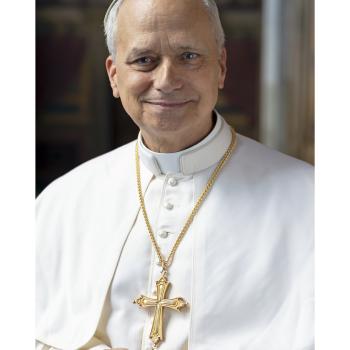What does it mean for us to be a disciple? Hopefully, we all want to follow Jesus. We probably ascribe to this on a theoretical level. But what happens when following Jesus means leaving behind our own comfort zone. Maybe we need to reflect whether we are we disciples or admirers of Jesus. Jesus challenged James and John to reflect on their own attitudes in following him in the Gospel passage Mk. 10:35-45. The great American theologian Stanley Hauerwas tells a story that can help us go deeper in this Gospel. It helps us see the difference between being a disciple and simply being an admirer.
Do You Have a Church?
In the early 1950s it is said that Clarence asked his brother, Robert Jordan, who would later be a state senator and a justice on the Georgia Supreme Court, to represent Koinonia Farm legally. His brother replied.
“Clarence, I can’t do that. You know my political aspirations. Why, if I represented you, I might lose my job, my house, everything I’ve got.”
“We might lose everything too, Bob.”
“It’s different for you.”
“Why is it different? I remember, it seems to me that you and I joined the church the same Sunday, as boys. I expect when we came forward the preacher asked me about the same question he did you. He asked me, ‘Do you accept Jesus as your Lord and Savior?’ And I said, ‘Yes.’ What did you say?”
“I follow Jesus, Clarence, up to a point.”
“Could that point by any chance be—the cross?”
“That’s right. I follow him to the cross, but not on the cross. I’m not getting myself crucified.”
“Then I don’t believe you’re a disciple. You’re an admirer of Jesus, but not a disciple of his. I think you ought to go back to the church you belong to and tell them you’re an admirer not a disciple.”
“Well now, if everyone who felt like I do did that, we wouldn’t have a church, would we?”
“The question,” Clarence said, “is, ‘Do you have a church?’” (Stanley Hauerwas, Matthew, p. 31).
The Accusation
The moral of this story seems to be that if the Church were only made of true disciples, then there would be no Church. This cannot be but it does present a good challenge for each of us: are we admirers or are we disciples? We can be tempted to make our religion about us. Instead of letting Jesus change us, we try to change him. We don’t want someone else telling us what to do. Focus on the community takes the place of the challenge to conform our mind to the mind of Christ. Does the Church help us to be better Christians? Does the Church do enough to demand that we be disciples?

Pope Francis is very clear that we are all called to be disciples.
The disciple is ready to put his or her whole life on the line, even to accepting martyrdom, in bearing witness to Jesus Christ, yet the goal is not to make enemies but to see God’s word accepted and its capacity for liberation and renewal revealed. (Pope Francis, Evangelii Gaudium, 24).
It is certainly not the intention of Church leadership to let us off the hook of the Gospel demand that we be disciples.
Following Half of the Gospel
We run the risk of falling into the same mistake that James and John did in today’s Gospel. “Grant that in your glory we may sit one at your right and the other at your left” (Mk. 10:37). They were right to understand that to follow Christ is to walk the road to the Kingdom of God. However, it seems that they missed the fact that we get there by imitating him in carrying our own crosses, not by sitting on thrones of glory. Mary, the Mother of Jesus, on the other hand, knew what it was to accompany her Son on the cross.
Being a Disciple
St. Augustine praised the virtues of the Blessed Virgin Mary, making sure to extol her role as a disciple.
It means more for her, an altogether greater blessing, to have been Christ’s disciple than to have been Christ’s mother. That is why Mary was blessed, because even before she gave him birth, she bore her teacher in her womb (St. Augustine, Sermon 72/A, 7).
Mary believed firmly in her son, and this had a lot of practical consequences in her life. We cannot expect to believe in Jesus and yet remain unchanged and untouched by his teaching. He challenges us today just like he challenged James and John.
Being Merely Admirers
When it seems that James and John are more interested in places of honor than to follow him, Jesus throws out a question that puts things in proper perspective.
Can you drink the cup that I drink or be baptized with the baptism with which I am baptized? (Mk. 10:38)
It is not enough to ask for a place in the Kingdom. They must imitate Christ in his baptism. Jesus already knows that he will die on a cross, but they do not. When they say they are ready, they are committing to an unconditional following of him. When we read further on in the Gospel, we will find out that they fulfilled this promise only imperfectly. They ran away when Jesus was arrested. Responding to the call of discipleship implied coming back. We must return to demanding discipleship in our Church. Dallas Willard, a Baptist pastor, made the following reflection on this topic:
One is not required to be, or to intend to be, a disciple in order to become a Christian, and one may remain a Christian without any signs of progress toward or in discipleship… following Christ in his example, spirit, and teachings as a condition of membership (Dallas Willard, The Great Omission, p. 4).
We are called to more than being simply admirers of Jesus.
Becoming Disciples
Does the Church make us better Christians? This is the fundamental question that each one of us should ask ourselves. And yet, we cannot lay all of the responsibility on the hierarchy. Each one of us has to take advantage of the what the Church offers so that we can accept the challenge to be better Christians.
Subscribe to the newsletter to never miss an article.













